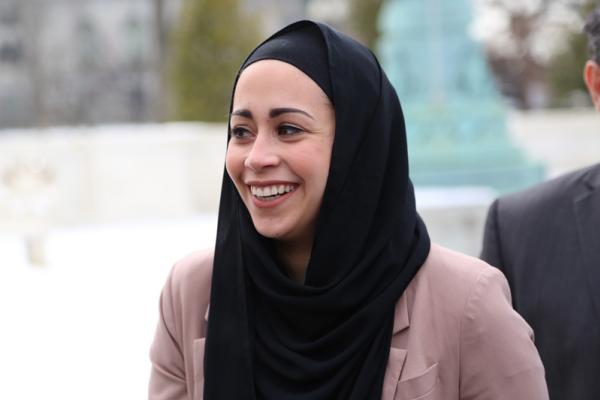Samantha Elauf was a teenager who loved clothes and applied to work in an Abercrombie & Fitch Kids store in her native Tulsa, Okla., in 2008. But Elauf, a Muslim, also happens to wear a headscarf. So she didn’t get the job.
No one — not even Abercrombie & Fitch — disputes that her hijab cost her the job offer. And the law, Title VII of the Civil Rights Act of 1964, states that an employer can’t deny employment based on an worker’s religious practice, unless accommodating it would prove terribly burdensome.
At the time, Abercrombie had a “no hats” policy for its sales associates. When the U.S. Supreme Court heard Elauf’s case on Feb. 25, Justice Ruth Bader Ginsburg summed up the religious exemption required of the company: “Title VII doesn’t require accommodating baseball caps, but it does require accommodating religious practice.”
So why did this case make it all the way to the Supreme Court?
Elauf, though she won in a federal district court in 2011, lost in a federal appeals court in 2013. At the 10th U.S. Circuit Court of Appeals in Denver, the company’s argument — that it shouldn’t have had to give a religious accommodation because Elauf never asked for one — found traction.
Do we really want companies delving into an applicant’s religious practice in order to determine whether the person might want an accommodation, Abercrombie lawyer Shay Dvoretzky asked the justices on Wednesday.
“This will inevitably lead employers to stereotype,” he said.
Read the Full Article

